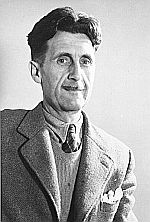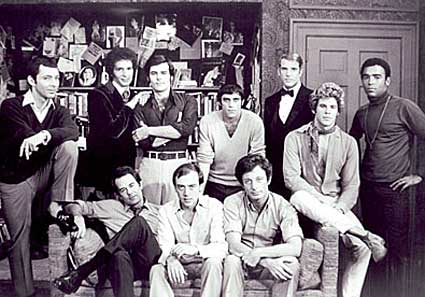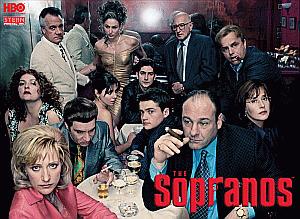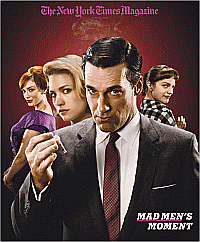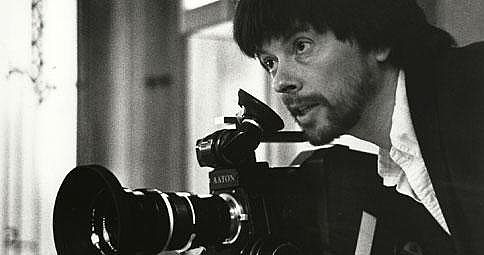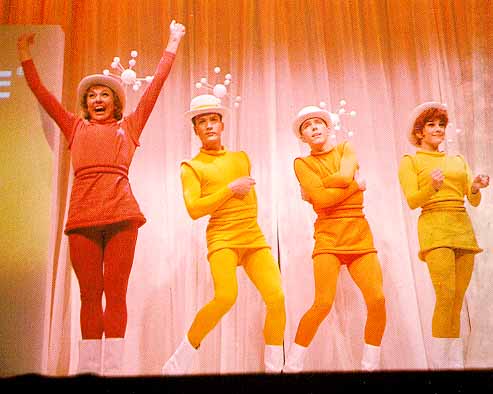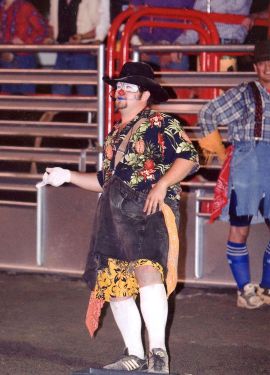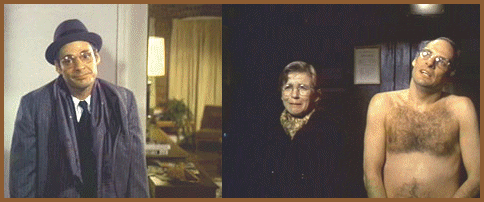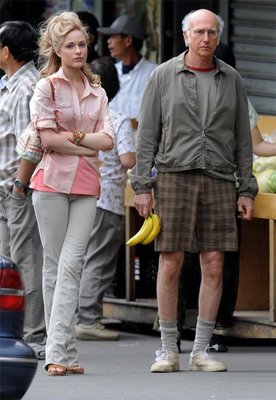
In the Woody Allen film “Whatever Works” a tone-deaf Larry David plays a Woody Allen manque and falls flat. It doesn’t help that he’s plugged into a poorly-written formula comedy. I love Larry David in “Curb Your Enthusiasm” but he appears to be one of those supremely successful orchestrators who, like Madonna, cannot get outside themselves, or rather, can’t get inside themselves.
The character he plays “Boris Yellnikoff” is crueler and more astringent than Alvy Singer or any of Allen’s previous protagonists. When the adoring Evan Rachel Wood appears with snowflakes in her eylashes, I literally cringed. I did the same when Mariel Hemingway’s character appeared in “Manhattan”. I can’t suspend my disbelief that these attractive young women are attracted to self-congratulary old farts.
A far more realistic scenario played out with the relationship between Max Von Sydow and Barbara Hershey in “Hannah and Her Sisters”. Hershey, although younger, doesn’t play a noble innocent, and Von Sydow, although bitter, is gritty and truly wounded.
In order to be successful, “Whatever Works” should have been written as a broad, character-driven comedy. In that case the lack of realism wouldn’t have mattered. They key is “broad” though, think early Woody Allen. An alternative would have been to go for realism – to make Boris Yellnikov a serious person, someone more like Sherwin Nuland’s old-world father in “Lost in America” (the book, not the Albert Brooks movie), someone who has seen their beliefs fail. This would raise the stakes tremendously when the character finally goes against all his fears and falls in love, only to be abandoned. Von Sydow and Hershey approached this in “Hannah”:
“Lee, you’re my whole world….Good God. Have you been kissed tonight? Yes, you have. You’ve been with someone!
Stop accusing me!
I’m too smart. You can’t fool me! You’re turning red! Leave Me! Oh, Christ! What’s wrong with you?
I’m sorry.
Couldn’t you say something? You slither…”
Tough stuff and I liked it a lot better. “Hannah and her Sisters” stopped there though, it tacked on a sentimental ending with a pregnant Hannah and all the main characters neatly paired up. I wonder if Woody Allen subconsciously put Larry David, in some ways his spiritual heir, into a movie he can’t have helped knowing was a weak imitation of earlier work. On the other hand he has put out a lot of weak imitations.
Most of the reviews I’ve read for “Whatever Works” have praised the “sunny” performance by Evan Rachel Wood is the best thing about the movie. To me this is an intellectual shortcut because Wood was in fact playing a “sunny” character, it’s like saying someone gave a “tired” performance when they were playing a fatigued character. Argh, like Boris Yellnikoff sometimes I hate everyone.
If there is a positive aspect to this film, it’s to put in sharp relief what an original, strong and interesting character Allen Stewart Konigberg created in “Woody Allen”. Woody Allen, more than any other public figure of the time, broke through the dominant American “Gunsmoke” culture of anti-intellectualism and anti-semitism. He snuck in through the back door of comedy and soon could not be ignored.
It’s no suprise then that growing up, Allen Konigsberg was an capable athlete, musician, magician and all-around non-schlemiel. These days I can’t keep up with the churn of his mediocre movies. It was only because of Larry David that I watched “Whatever Works”and I was disappointed on all counts.

